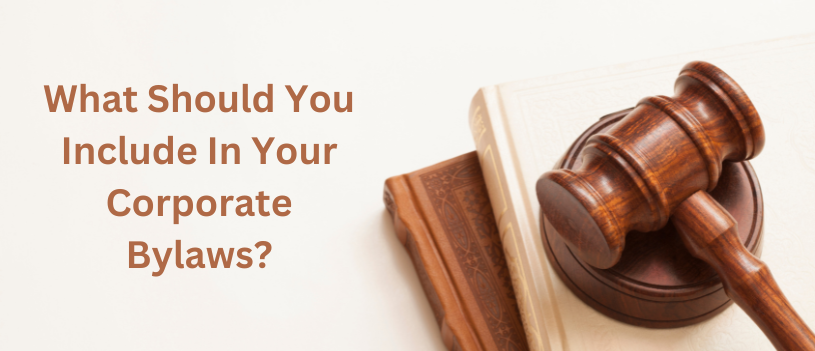If you are considering starting your own business, you may have thought about the need to protect yourself by forming an entity. However, there are more things you should consider if you want to protect your assets as well as the interests of any business partners you may have. To fully protect yourself, you will need to create corporate bylaws that govern how your business runs.
What are corporate bylaws? These are rules and regulations that help dictate how a business is set up and how it is run daily. Essentially, once your business has been set up as a corporation, consider who to have on your board of directors and create a set of corporate bylaws for your company. Most states require that corporations have bylaws, however, these are not required to be filed with any government agency.
Once you have created your business, have your board of directors, and are interested in starting to draft your business’ bylaws, it is important to know what should be included in your rules and regulations. Consider adding the following in your bylaws:
Basic Corporate Information/Statement of Purpose. This section of the bylaws should include your business’ goals and aspirations. Include who your customer is, why you created the business, and how you plan to reach each of your future goals. If you are interested in qualifying as a 501(c)(3) non-profit corporation, this is especially important as you will want to put extra thought in regarding your statements and goals.
Members. Your corporation will have members from directors, shareholders, employees, and officers. You should include within your bylaws which type of members your business will have and their responsibilities and voting rights. It is also important to discuss how members can be added or removed from your corporation.
Board of Directors. Your bylaws should include the maximum and minimum board members, qualifications required to be a board member, how elections are held, how board meetings are conducted, and determine the minimum number of directors necessary to conduct business and approve decisions.
Officers. Once you have your board of directors, they will choose officers who will handle the day-to-day operations. The bylaws will also define the roles and titles of officers and what their responsibilities are.
Stock. One of the first responsibilities of your corporation should be to issue stock to your shareholders. Your bylaws will dictate the types of stock and number of available shares. The bylaws will also explain the difference between voting and nonvoting stock for future shareholder meetings.
Shareholder Meetings. Your business should hold annual shareholder meetings. Within your bylaws, it should explain when these meetings will be held as well as the order of business at the meetings. Besides annual meetings, it is recommended to have quarterly meetings. Your bylaws should also indicate the circumstances, the way meetings are called, and timing for meetings.
Committees. Committees are a subset of directors that handle certain tasks. Your bylaws will include what kind of committees your business will have and how they will operate.
Conflicts of Interest. Due to board members having multiple responsibilities, it is important to explain requirements for directors to disclose any conflicts of interests. These rules help prevent members from hurting the company’s reputation and to prevent ethical problems.
Overall, creating your bylaws is an extremely important step for you and your business. It is recommended that you speak with a lawyer to discuss any questions or concerns you may have. If you need aa referral to an attorney we know and trust to assist you, reach out to us today at 310-534-5577 or contact@abandp.com.
https://471589.fs1.hubspotusercontent-na1.net/hubfs/471589/The%20Hartford%20Newsletter%20-%20corporate%20bylaws.pdf
